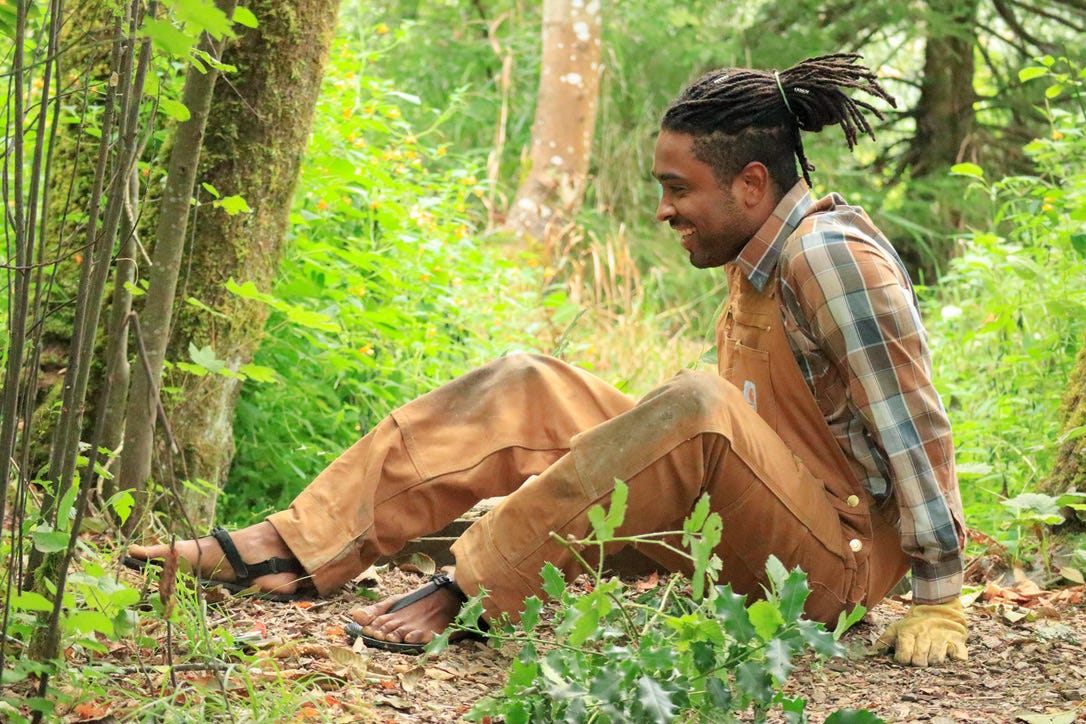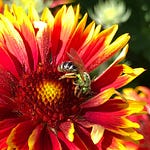'All relationships are ecological relationships' has been a mantra of mine for the last eight years or so. I was working in conservation before pivoting into my present role (whatever that is...parent, gardener, wetland...), and there was a certain contingent of people in the conservation field in those years who resisted our emerging (and long overdue) attention to diversity, equity, and inclusion (DEI) and environmental justice. In the minds of these more old-school eco-warriors, focusing on 'human' problems was distracting us from the urgent work of protecting ecosystems.
My response to these guys (and yes, all of them, at least the ones in my network, were guys) was twofold. First, it seems self-evident that to broaden the base of support for environmental protection and restoration means finding solidarity between all struggles for a better life that have an environmental dimension (which, I would argue, is most if not all of them); and learning from the extraordinary range of strategies and frames that other movements for justice and life have successfully deployed—not only in order to win, but also in order to stick it out, to be healthy and alive and together in the ongoing work for change.
Second, my observation is that we mistreat and exploit other human beings in exactly the same ways as we mistreat and exploit Earth. Our myths of separation and our will to dominion are expressed and exercised across human and non-human systems alike. So, to my mind, working toward wellness in any of our relationships—relationships between humans, between societies, between humans and land and other species, between humans and our ghosts and ancestors, between me and my mom, between you and your kid or your neighbor—is working toward the wellness of the ecological whole. We’re iterations of that whole, and we and the systems we’re created are nested inside it. Its wellness or unwellness is our own, and vice versa.
Hence, let us move Kinward. All relationships are ecological relationships.
In this tenth (heyo double digits!) episode of Kinward podcast, I speak with my longtime friend and role model Axcelle Campana about the many ways our struggles are intertwined and our thriving mutual.
Axcelle is an Environmental Justice Practitioner with Knot Studios, an urban design firm in Portland Oregon whose projects integrate equity, social-ecological wellbeing, and environmental stewardship. Axcelle is also currently finishing up his master’s degree in Geography at Portland State University, with a thesis exploring the dynamics that have maintained inequities in access to green spaces and urban tree cover. Shade equity is an essential environmental justice consideration for our climate-chaos future, and Axcelle has won a prestigious environmental prize for his work on this important topic. And as we discuss in this episode, the forces that have aligned to keep some neighborhoods shady and cool while others bake are not always as obvious as you might think.
Axcelle and I met at Reed College in Portland, where he led volunteers in our campus nature preserve, served on the Honor Council, and never let us forget the broader societal patterns that made it so much easier for some than others to access and take advantage of educational support. Over the years I’ve known him, Axcelle has also worked in permaculture, conservation, intentional community, civic engagement, DEI, and education. He’s a creative, kind and playful friend. And his commitment to values alignment, community-tending, and skill-building has always inspired me.
This episode ranges from the very personal refuges Axcelle has found among trees and made with family, to a headier discussion of environmental justice in practice, to speculations about how we might live the futures we long for now. The thread I follow through this wide-ranging episode is the thread of my yearning toward healthier relationships: in practice, in process, at all scales.
If you love this episode and/or you’re proud of us for hitting double digits, consider becoming a sustaining subscriber to Kinward Moves, and please do leave a review and a rating on Apple Podcasts or Spotify. This helps a lot with visibility. Thank you!
Gratitudes for this episode include: to Axcelle, for, among many other things, being the very first person to say yes to coming on the podcast, back when it was just a twinkle in my eye; to Lauren and Rita for a very restorative several days of camping earlier this week; to the huckleberry bushes for the first huckleberries of the season; to the moon potluck crew for regular exercise in manifesting and letting go; and to all of you, for listening.















Share this post